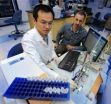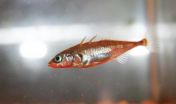(Press-News.org) Washington, D.C. – The Presidential Commission for the Study of Bioethical Issues today released an ethics study guide based on the Commission's investigation into the U.S. Public Health Service (PHS) experiments conducted in Guatemala in the 1940s. A Study Guide to "Ethically Impossible" STD Research in Guatemala from 1946 to 1948 is designed for use by higher education and other interested members of the public. It is free and available for immediate use in classrooms and elsewhere at www.bioethics.gov.
"As the world is now aware, the PHS research involved intentionally exposing vulnerable populations to sexually transmitted diseases without the subjects' consent," said Commission Chair Amy Gutmann, Ph.D. "Two years ago the revelation of that research resulted in President Obama asking the Bioethics Commission to conduct a thorough fact-finding investigation into the unethical studies."
"The Commission has consistently noted the marked need for more ethics education," Gutmann added. "We have developed this Study Guide to Ethically Impossible to help educate students at all institutions, including those without ethics departments or access to ethics curricula. The Study Guide enables students to view this period in our history in a more complete context, including how the Guatemala research was planned and took place."
The Commission is an independent, deliberative panel of experts that advises the President and the Administration and, in so doing, also educates the nation on bioethical issues. The set of case studies is designed to be accessible, and to promote guided ethics discussion based on real world examples.
"Students will be able to assess internal agency debates about its scientific validity and its political sensitivity for themselves" said historian Paul Lombardo, a senior advisor to the Commission, who plans to teach a seminar on the Guatemala STD research at Georgia State University in Atlanta. "They will also be able to experience the difficult questions that arise when it is necessary to make moral assessments about unethical events in the distant past. This depth of background has not been easily available for students who examine most other incidents in the history of bioethics."
The Commission's findings and ethical assessment of those events, documented in its report "Ethically Impossible" STD Research in Guatemala 1946 to 1948 (released September 2011), illustrate how the quest for scientific knowledge without regard to relevant ethical standards can blind researchers to the humanity of the people they enlist into research.
As the Commission assessed the current rules and regulations in place that protect human participants in research, it called for expanded ethics discourse and education. In its report Moral Science: Protecting Participants in Human Subjects Research (released December 2011), the Commission wrote:
To ensure the ethical design and conduct of human subjects research, universities, professional societies, licensing bodies, and journals should adopt more effective ways of integrating a lively understanding of personal responsibility into professional research practice. Rigorous courses in bioethics and human subjects research at the undergraduate as well as graduate and professional levels should be developed and expanded to include ongoing engagement and case reviews for investigators at all levels of experience.
"We sincerely hope that college and university professors incorporate this into their already existing ethics classes, or use it to present an ethics discussion in a science, law, medical, history, or any other class," Gutmann said. "Informal groups of students could use this for self guided discussion. Even book groups or lunch time discussion groups at the office could use this. The point is to get us all talking about ethics. Encouraging people to talk about what happened in Guatemala, and to think and to learn about ethics is another way to both honor the memory of the victims and help ensure that society learns from these offenses."
###
Both the Study Guide and the original full report, "Ethically Impossible," are posted on www.bioethics.gov.
President's Bioethics Commission posts Study Guide
Educational piece based on the 1940s US Public Health Service STD experiments in Guatemala
2012-11-15
ELSE PRESS RELEASES FROM THIS DATE:
ACA: More than a million women could gain access to potentially life saving tests for cancer
2012-11-15
WASHINGTON—A study by researchers at the George Washington University School of Public Health and Health Services (SPHHS) indicates that full implementation of the Affordable Care Act would expand health insurance coverage for more low-income women, enabling more than a million women to obtain potentially life-saving screening for breast and cervical cancer. The study, "Health Care Reform and Women's Insurance Coverage for Breast and Cervical Cancer Screening," was published in a recent issue of the journal Preventing Chronic Disease.
In the past, many low income women ...
Protein tug of war points toward better therapies for cardiovascular disease
2012-11-15
AUGUSTA, Ga. – Two proteins are in a tug of war that determines how much the body makes of superoxide, a highly reactive and potentially destructive product of oxygen that's dramatically elevated in cardiovascular disease, researchers report.
Their finding indicates an antiulcer drug just may help the body reduce excessive levels.
Hsp90 and Hsp70 are both heat shock proteins but appear to have opposite effects on reactive oxygen species production, said Dr. David J.R. Fulton, Interim Director of the Vascular Biology Center at the Medical College of Georgia at Georgia ...
Researchers uncover some good news for BC's troubled salmon populations
2012-11-15
Researchers uncover some good news for BC's troubled salmon populations
A University of Alberta led research team has some positive news for British Columbia's pink salmon populations, and the salmon farming industry that has struggled to protect both captive and wild salmon from sea lice infestations.
There has long been concern that concentrations of sea lice in BC's fish farming pens spread to wild fish stock in surrounding waters.
The researchers discovered that by changing the timing of sea lice treatments, one salmon farming region not only improved the health ...
Researchers use GPS tracking to monitor crab behavior
2012-11-15
This press release is available in German.
Researchers from Jena and Greifswald used GPS satellites for a long-term behavioral monitoring of land crab migration on Christmas Island. In cooperation with colleagues from the Zoological Institute at the University of Greifswald, scientists from the Max Planck Institute for Chemical Ecology in Jena, Germany, used a GPS-based telemetric system to analyze movements of freely roaming robber crabs, which is the first large-scale study of any arthropod using GPS technology to monitor behavior.
This analysis focussed on the ...
Born-again star foreshadows fate of solar system
2012-11-15
Astronomers have found evidence for a dying Sun-like star coming briefly back to life after casting its gassy shells out into space, mimicking the possible fate our own Solar System faces in a few billion years.
This new picture of the planetary nebula Abell 30, located 5500 light-years from Earth, is a composite of visible images from the NASA/ESA Hubble Space Telescope and X-ray data from ESA's XMM-Newton and NASA's Chandra space telescopes.
'Planetary nebula' is the name given to the often-concentric shells of stellar material cast into space by dying stars. To astronomers ...
X-rays from a reborn planetary nebula
2012-11-15
These images of the planetary nebula Abell 30, (a.k.a. A30), show one of the clearest views ever obtained of a special phase of evolution for these objects. The inset image on the right is a close-up view of A30 showing X-ray data from NASA's Chandra X-ray Observatory in purple and Hubble Space Telescope (HST) data showing optical emission from oxygen ions in orange. On the left is a larger view showing optical and X-ray data from the Kitt Peak National Observatory and ESA's XMM-Newton, respectively. In this image the optical data show emission from oxygen (orange) and ...
Streams show signs of degradation at earliest stages of urban development
2012-11-15
The loss of sensitive species in streams begins to occur at the initial stages of urban development, according to a new study by the USGS. The study found that streams are more sensitive to development than previously understood.
"We tend not to think of waterways as fragile organisms, and yet that is exactly what the results of this scientific investigation appear to be telling us," said USGS Director Marcia McNutt. "Streams are more than water, but rather communities of interdependent aquatic life, the most sensitive of which are easily disrupted by urbanization."
Contaminants, ...
Umbilical cord cells outperform bone marrow cells in repairing damaged hearts
2012-11-15
TORONTO, Ontario (13 November, 2012) - A study published this month by researchers at the University of Toronto and Toronto's Princess Margaret Hospital has shown that cells derived from the umbilical cord, "Human Umbilical Cord PeriVascular Cells" (HUCPVCs), are more effective in restoring heart function after an acute myocardial infarction (in common parlance, a heart attack) in a pre-clinical model than a similar cell population derived from bone marrow.
At present, mesenchymal cells, known to release a series of factors that stimulate tissue repair, and control inflammation, ...
Study Tracks Brain Gene Response to Territorial Aggression
2012-11-15
CHAMPAIGN, Ill. — With a mate and a nest to protect, the male threespined stickleback is a fierce fish, chasing and biting other males until they go away.
Now researchers are mapping the genetic underpinnings of the stickleback's aggressive behavior. Armed with tools that allow them to see which genes are activated or deactivated in response to social encounters, a team from the University of Illinois has identified broad patterns of gene activity that correspond to aggression in this fish.
A paper describing their work appears in the Proceedings of the Royal Society: ...
Like a game of poker, school programs' success can hinge on principals going 'all in'
2012-11-15
PITTSBURGH—When principals go "all in" in terms of supporting school programs, teachers stand a better chance of successfully implementing change, according to new research published by the University of Pittsburgh and the University of Virginia (UVA).
The researchers report in Prevention Science that if school principals lack enthusiasm or show little support, they are actually viewed as a hindrance by teachers, posing "major challenges" to the success of school programs like the Responsive Classroom®, an approach boasting social-emotional learning. Additionally, apprehensive ...
LAST 30 PRESS RELEASES:
Insufficient sleep among US adolescents across behavioral risk groups
Long COVID and recovery among US adults
Trends in poverty and birth outcomes in the US
Heterogeneity of treatment effects of GLP-1 RAs for weight loss in adults
Within-person association between daily screen use and sleep in youth
Low-dose lithium for mild cognitive impairment
Catheter ablation and oral anticoagulation for secondary stroke prevention in atrial fibrillation
A new theory of brain development
Pilot clinical trial suggests low dose lithium may slow verbal memory decline
Bioprinting muscle that knows how to align its cells just as in the human body
A hair-thin fiber can read the chemistry of a single drop of body fluid
SwRI develops magnetostrictive probe for safer, more cost-effective storage tank inspections
National report supports measurement innovation to aid commercial fusion energy and enable new plasma technologies
Mount Sinai, Uniformed Services University join forces to predict and prevent diseases before they start
Science of fitting in: Do best friends or popular peers shape teen behavior?
USF study: Gag grouper are overfished in the Gulf; this new tool could help
New study from Jeonbuk National University finds current climate pledges may miss Paris targets
Theoretical principles of band structure manipulation in strongly correlated insulators with spin and charge perturbations
A CNIC study shows that the heart can be protected during chemotherapy without reducing antitumor efficacy
Mayo Clinic study finds single dose of non-prescribed Adderall raises blood pressure and heart rate in healthy young adults
Engineered immune cells show promise against brain metastases in preclinical study
Improved EV battery technology will outmatch degradation from climate change
AI cancer tools risk “shortcut learning” rather than detecting true biology
Painless skin patch offers new way to monitor immune health
Children with poor oral health more often develop cardiovascular disease as adults
GLP-1 drugs associated with reduced need for emergency care for migraine
New knowledge on heritability paves the way for better treatment of people with chronic inflammatory bowel disease
Under the Lens: Microbiologists Nicola Holden and Gil Domingue weigh in on the raw milk debate
Science reveals why you can’t resist a snack – even when you’re full
Kidney cancer study finds belzutifan plus pembrolizumab post-surgery helps patients at high risk for relapse stay cancer-free longer
[Press-News.org] President's Bioethics Commission posts Study GuideEducational piece based on the 1940s US Public Health Service STD experiments in Guatemala




